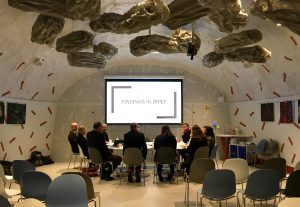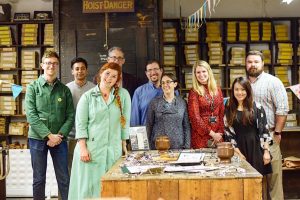Wellcome/NSF Funded “STEM Teens” Project
Core Research Team: Adam Rutland, Mark Winterbottom, Luke McGuire, Fidelia Law (UK) Adam Hartstone-Rose, Kelly Lynn Mulvey, Eric Goff, Matt Irvin (USA)
This five-year project examines the influence of youth educators in informal science learning settings (ISLS). The project examines this influence from two distinct angles.
First, we will longitudinally survey ‘STEM Teens’ – youth educators working in our six sites in the UK and US. This side of the project draws from Expectancy-Value Theory and tries to understand how such volunteer positions may increase self-efficacy, perceived competence and reduce gender/ethnicity stereotypes about who can be involved in the STEM workforce.
Second, the project examines whether the presence of youth educators in our ISLS has an impact on visitor’s experiences. More specifically, we will examine situations where visitors interact with a youth educator, an adult educator, or no educator. We are interested in whether interacting with a youth educator changes STEM interest, engagement, learning and stereotypes. This involves:
a. surveying visitors at pre-selected exhibits in the ISLS
b. video/audio recording of interactions between visitors and educators at these sites.

Useful Readings:
Dawson, E. (2014). ‘Not designed for us’: How science museums and science centers socially exclude low-income, minority ethnic groups. Science Education, 98, 981-1008.doi:10.1002/sce.21133
Eccles, J. S., & Wang, M.-T. (2016). What motivates females and males to pursue careers in mathematics and science? International Journal of Behavioral Development, 40, 100-doi:10.1177/0165025415616201
Eccles, J. S., & Wigfield, A. (2002). Motivational beliefs, values, and goals. Annual Review of Psychology, 53, 109-132. doi:10.1146/annurev.psych.53.100901.135153


